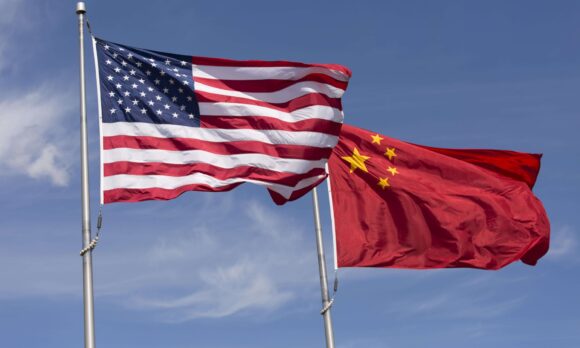
A New Strategic Framework for Advancing U.S. Interests in the Economic Relationship with China
Today, rising security concerns have become a defining feature in the U.S.-China economic relationship. Heightened tensions over trade, investment, and regulatory restrictions on both sides have turned economic competition into a worrisome source of instability, with global geopolitical and economic repercussions. In this context, it is imperative that the United States develop a strong, pragmatic strategy for advancing its economic and security interests in the complex and consequential economic relationship with China. This research project seeks to guide policymakers as they develop a new strategic framework that serves the core economic and security interests of the United States.
As part of this research endeavor, the CNAS report—Disorderly Conduct: How U.S.-China Competition Upended the International Economic Order and What the United States Can Do to Fix It—argues that the primary objective of the United States should be to lead in the creation and maintenance of a new global economic order in which the efficiency and innovation of open markets are pursued side by side with the establishment of new norms for government interventions. To achieve this, the United States should have clearly defined areas of interests as related to hard power, resilience, and commercial engagements.
Resetting the global economic order to account for today’s geopolitical reality is no easy task, and doing so requires the United States to overcome hurdles both at home and in collaboration with allies. With this series of publications, we hope to lay the intellectual groundwork for addressing these challenges, helping policymakers as they navigate foreseeable turbulence in the U.S.-China economic relationship.
Read the Report

Disorderly Conduct
The United States must develop a strong, pragmatic strategy for advancing its economic and security interests within the U.S.-China economic relationship, accounting for the f...
Read MoreExpert Analysis
Commentaries and op-eds from experts engaged in the project.
- How Economic Talks with China Can Advance U.S. Interests by Lily McElwee for Lawfare
- Navigating the Securitization of the U.S.-China Economic Relationship: Why Dialogue is Still Important by Kacie Miura for U.S.-China Perception Monitor
- How Will China Responds to Biden’s Tariffs? Look at Trump’s Trade War by David Steinberg and Yeling Tan for the Peterson Institute for International Economics
- What Europe Wants from America on Economic Security by Tobias Gehrke for The Hill
- China’s Updated Playbook for Reviving Growth Risks More Tensions with the World by Martin Chorzempa for PIIE
Related CNAS Research
Containing Crisis
As the United States and China seek to manage an increasingly tense relationship, both sides have turned to coercive economic statecraft as a core part of their broader foreig...
Sanctions by the Numbers: SDN, CMIC, and Entity List Designations on China
The United States has progressively expanded the scope of sanctions and entity-based export controls on Chinese persons (i.e., individuals and entities), primarily through the...
America’s China Strategy Has a Credibility Problem
An effective U.S. sanctions strategy should play to U.S. strengths in the financial sector while reserving the most severe measures for acute crises or conflicts....
The Illusion of Controls
The case of semiconductors illustrates how countries cannot easily weaponize interdependence, especially when it comes to supply chains....
How to Win Friends and Choke China’s Chip Supply
U.S. officials should prioritize aligning controls with other major producer nations to target the most significant technology chokepoints and the areas where the risk of back...
Subscribe
Stay up-to-date with the Energy, Economics & Security team at CNAS.
Thank you for registering! You will receive a confirmation email shortly. All CNAS events are free, open to the public, and viewable from cnas.org/live.
Stay up-to-date with report releases, events, major updates, and announcements from the Center for a New American Security.





